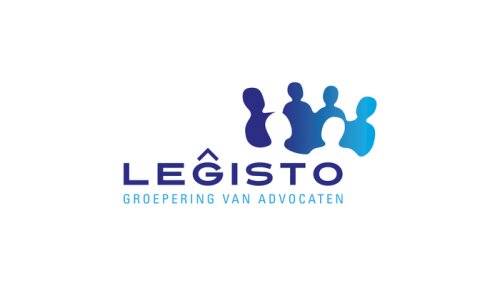Best Oil, Gas & Energy Lawyers in Mol
Share your needs with us, get contacted by law firms.
Free. Takes 2 min.
List of the best lawyers in Mol, Belgium
About Oil, Gas & Energy Law in Mol, Belgium
Mol, located in the province of Antwerp, Belgium, is a region known for its involvement in various energy-related activities, including research and development in the field of nuclear energy, as well as environmental technologies. Oil, gas, and energy law in this area covers a wide array of regulations and legal frameworks that govern the exploration, production, transportation, distribution, and consumption of energy resources. These laws are designed to promote sustainable energy use, protect the environment, and ensure the safety and reliability of energy infrastructure, while also upholding consumer rights and addressing the interests of both private and public stakeholders.
Why You May Need a Lawyer
The oil, gas, and energy sectors are heavily regulated and complex, with numerous legal obligations and potential liabilities. There are several common situations where individuals, businesses, or organizations may require legal assistance in Mol:
- Entering into contracts related to energy supply, development, or infrastructure
- Negotiating land use or property rights for energy projects
- Obtaining permits or complying with environmental standards for exploration or production
- Handling disputes with neighboring landowners, energy companies, or regulatory authorities
- Understanding changes to energy policy or renewable energy incentive schemes
- Ensuring compliance with health, safety, and environmental regulations
- Pursuing compensation for damages or losses caused by energy activities
- Navigating merger and acquisition processes involving energy assets
- Seeking legal recourse for breaches of contract or regulation
In such scenarios, a qualified lawyer can help ensure your interests are protected and that you fully understand your rights and responsibilities under Belgian and European Union law.
Local Laws Overview
Oil, gas, and energy law in Mol is shaped by a combination of Belgian federal law, Flemish regional regulations, and EU directives. Key aspects include:
- Permitting and Licensing: All activities related to oil, gas, and energy production or distribution generally require authorization from regional and, in some cases, federal authorities.
- Environmental Impact: Compliance with strict environmental standards, including impact assessments and adherence to emission restrictions, is mandatory for energy projects.
- Health and Safety: Energy companies must follow guidelines that ensure the safety of workers and the general public.
- Land Use Regulations: Local zoning and land-use laws may restrict where certain energy infrastructure can be developed.
- Renewable Energy Incentives: There are incentive schemes and targets for renewable energy production, particularly important within the Flemish Region.
- Consumer Protections: Laws ensure fair practices for consumers, including transparent billing and the right to choose providers.
- EU Integration: Mol must also comply with EU energy market regulations and participate in broader energy transition strategies.
Understanding how these laws interact is essential for anyone involved in the oil, gas, or energy sectors in Mol.
Frequently Asked Questions
What permits do I need to start an energy project in Mol?
You will likely need multiple permits, including environmental approval and specific operating licenses, depending on the type of project. These are issued by local or regional authorities.
Are there incentives for using or producing renewable energy in Mol?
Yes, the Flemish government offers several incentives and support schemes for renewable energy projects, including grants, tax deductions, and green certificates.
How are disputes between landowners and energy companies resolved?
Disputes may be resolved through negotiation, mediation, or, if necessary, litigation in local courts, sometimes following administrative procedures first.
Can I install solar panels or wind turbines on my property in Mol?
Yes, but you must comply with zoning regulations and sometimes obtain a permit, especially for larger installations or those in protected areas.
What regulations apply to oil storage and transport?
Oil storage and transport must comply with strict safety, environmental, and reporting standards at the federal and regional levels.
How is energy pricing regulated in Mol?
Energy prices are influenced by both federal regulation and the competitive market, with some consumer protections in place to prevent unfair practices.
What should I do if my energy provider breaches its contract?
You should first attempt to resolve the issue directly with the provider. If that fails, you can seek legal assistance or approach regulatory authorities for help.
Are there specific rules for companies wishing to invest in energy infrastructure?
Yes, companies need to comply with planning, safety, and environmental requirements, as well as investment screening where applicable.
Do I need to conduct an environmental assessment for a new energy project?
Most new commercial energy projects require an environmental impact assessment in line with both regional and EU laws.
Where can I find more information about energy regulations in Mol?
You can obtain information from local authorities, regional energy agencies, and legal professionals specializing in energy law.
Additional Resources
Several organizations and governmental bodies provide useful information and support for oil, gas, and energy matters in Mol:
- Municipality of Mol - Environmental and Energy Services
- Flemish Energy Agency (VEA)
- Belgian Federal Public Service Economy - Energy Division
- Energy Ombudsman Service (for consumer complaints)
- Federation of Belgian Energy Companies (FEBEG)
- Local environmental protection organizations
- Professional legal associations specializing in energy law
These organizations can provide further guidance, facilitate applications, or direct you to qualified professionals.
Next Steps
If you require legal advice or assistance in the field of oil, gas, or energy in Mol, Belgium, consider the following steps:
- Identify and clearly define your legal issue or question
- Gather all relevant documents, contracts, and correspondences
- Consult with a lawyer who specializes in oil, gas, and energy law, preferably with experience in the Flemish Region
- Reach out to local authorities or professional organizations for initial guidance or referrals
- Stay informed about policy developments and regulatory changes that may affect your situation
Taking proactive steps and seeking qualified legal counsel can protect your interests, ensure compliance with complex regulations, and help you achieve the best possible outcome in any oil, gas, or energy related matter.
Lawzana helps you find the best lawyers and law firms in Mol through a curated and pre-screened list of qualified legal professionals. Our platform offers rankings and detailed profiles of attorneys and law firms, allowing you to compare based on practice areas, including Oil, Gas & Energy, experience, and client feedback.
Each profile includes a description of the firm's areas of practice, client reviews, team members and partners, year of establishment, spoken languages, office locations, contact information, social media presence, and any published articles or resources. Most firms on our platform speak English and are experienced in both local and international legal matters.
Get a quote from top-rated law firms in Mol, Belgium — quickly, securely, and without unnecessary hassle.
Disclaimer:
The information provided on this page is for general informational purposes only and does not constitute legal advice. While we strive to ensure the accuracy and relevance of the content, legal information may change over time, and interpretations of the law can vary. You should always consult with a qualified legal professional for advice specific to your situation.
We disclaim all liability for actions taken or not taken based on the content of this page. If you believe any information is incorrect or outdated, please contact us, and we will review and update it where appropriate.









